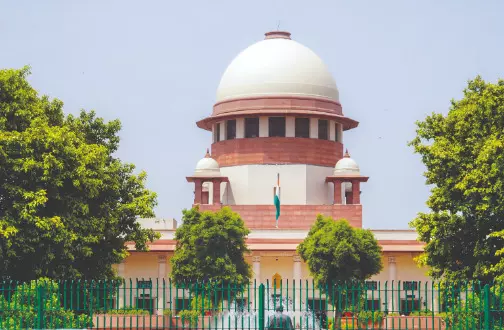SC says beggars’ homes maintained by state not discretionary charity

New Delhi: A beggars’ home maintained by the state is not a discretionary charity and its administration must reflect the values of constitutional morality, the Supreme Court said while issuing a slew of directions to ensure that dignified living conditions are maintained continuously at such centres.
A bench of Justices J B Pardiwala and R Mahadevan said all the states and Union Territories are required to institutionalise reforms in beggars’ homes and analogous institutions under their control, so that the constitutional guarantee of life with dignity is meaningfully secured for this most vulnerable section of society.
The top court said the failure to ensure humane conditions in such homes does not merely amount to maladministration; it constitutes a constitutional breach of the fundamental right to life with dignity.
“This judicial articulation leaves no doubt that the state’s responsibility towards indigent persons is affirmative and non-derogable. A beggars’ home, maintained by the state, is thus a constitutional trust, not a discretionary charity. Its administration must reflect the values of constitutional morality – ensuring liberty, privacy, bodily autonomy, and dignified living conditions,” the bench said.
The apex court said every individual admitted to a beggars’ home shall mandatorily undergo a medical screening by a qualified medical officer within 24 hours of admission.
“Monthly health check-ups shall be conducted for all inmates by a designated medical team. A disease surveillance and early warning system shall be established at all beggars’ homes, with special protocols for prevention, detection, and containment of communicable and waterborne diseases.
“All the state governments/UTs shall frame, notify, and strictly enforce minimum hygiene and sanitation standards at beggars’ homes, which shall mandatorily include continuous access to potable drinking water, functional toilets with proper drainage system, and regular pest control and vector management measures,” the bench said.
The directions came in a case arising out of an incident at a beggars’ home in Lampur in North Delhi district, where contamination of drinking and cooking water with coliform bacteria resulted in an outbreak of cholera and gastroenteritis among the inmates.
The top court directed that all the state governments/UTs shall conduct an independent third-party infrastructure audit of every beggars’ home within their jurisdiction at least once every two years.
Occupancy in each beggars’ home shall not exceed its sanctioned capacity, so as to prevent overcrowding and the spread of communicable diseases, it said.
“Adequate provisions shall be made for safe housing, ventilation, and access to open spaces, consistent with human dignity. Every beggars’ home shall appoint, or designate from an associated government hospital, a qualified dietician to regularly verify the quality and nutritional standards of food served to the inmates. Standardised dietary protocols shall be framed, ensuring nutritional adequacy.



